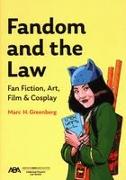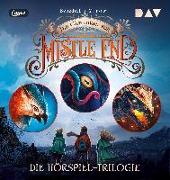- Start
- Fandom and the Law: A Guide to Fan Fiction, Art, Film & Cosplay
Fandom and the Law: A Guide to Fan Fiction, Art, Film & Cosplay
Angebote / Angebote:
Fandom is a cultural phenomenon, embraced by millions of people worldwide, and its expression is the driving force for fan conventions, websites, and other forms of expression. Fandom and the Law is a current and unique resource that looks at the sociology of fandom, as expressed in fan-created content, and how established legal doctrines affect the creation and dissemination of fan fiction, fan art, fan film, and cosplay (costume play).
Author Marc H. Greenberg is a law professor who teaches in the areas of entertainment, copyright, and pop culture, and he also represents comic book creators and historians on a diverse array of legal projects. He looks at the four main areas of creative fandom--fan fiction, fan art, fan film, and cosplay, and examines the role of fan content creators within this participatory culture, explaining the meaning of this phrase, the importance of this concept to fan content creators, and the critical element of communities of fandoms.
The book next discusses the legal doctrines that affect fan-created works, providing in-depth historical and legal analysis of those aspects of U.S. law whose impact is felt through all fan-created creative works, especially copyright law that is the most relevant to the fan-content creator. This section concludes with a focus on two relevant legislative developments: the PROTECT Act and the CASE Act, the latter of which is currently pending final legislative approval.
Next, the book provides a narrow focus on the interaction between the law and the different types of fan-created works with consideration of the specific legal issues regarding each type of content. Further, the book examines the critical role of social media in fandom and fan-created content. This chapter examines the legal issues arising from the huge role social media plays in fandom as this is the primary means by which fan-created content is displayed and distributed.
Perhaps more so than in other areas of endeavor, fan-created content, with its inherent tension between fan creators and the original creators of the works that inspire them, turns to the law and the legal system to moderate that tension. The book looks to the future of fan-created content and how legal likely to impact that future, in both positive and negative ways, including how production companies have chosen to respond to fan-created works based on their content in the past and whether those reactions are likely to change in the future.
Who can use this book? First and foremost, it is written to meet the needs of attorneys who counsel fan content creators and scholars who are interested in how the law affects this creative process. Yet the book also provides approachable and practical information for fan content creators themselves and the growing number of "acafans" or academics who study pop culture and fandom.
Folgt in ca. 15 Arbeitstagen




